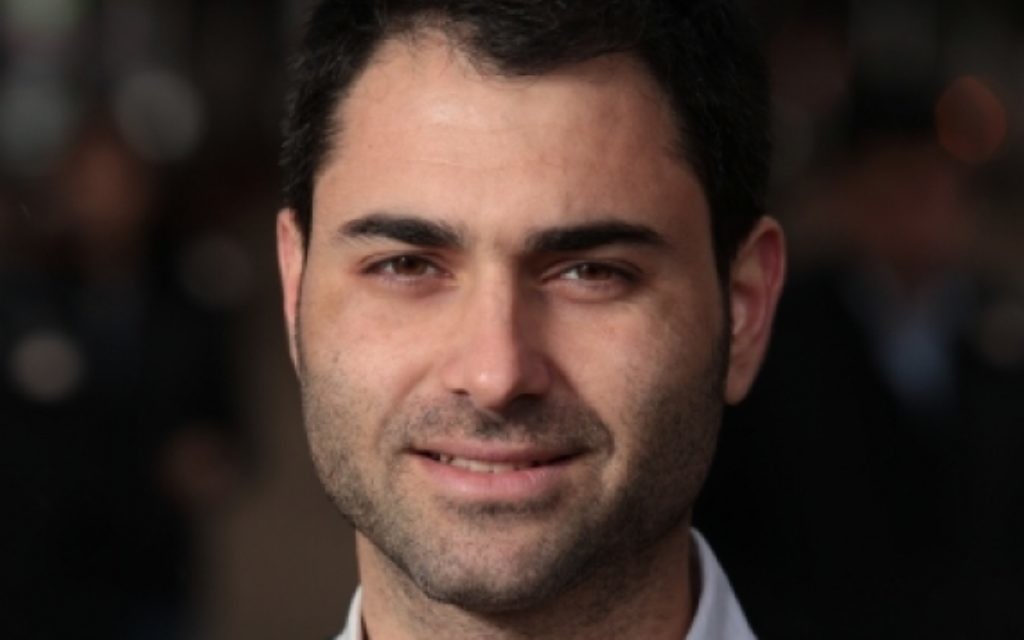New Director: NIF Strengthens Bond to Israel
Human Rights and religious freedom are among the initiatives NIF's new Director aims to tackle.

When New Israel Fund was looking this spring to replace its longtime executive director in Israel, Rachel Liel, it found what NIF CEO Daniel Sokatch called the right mensch in a religious-freedom nonprofit organization that had launched with NIF’s help, Be Free Israel (Israel Hofsheet).
“NIF is at the heart of the efforts to realize the vision of Israel’s Declaration of Independence: that all will live here in peace, equality, freedom and justice,” Mickey Gitzin said in the announcement of his hiring in May. “Israel’s most beautiful and powerful asset is its social diversity, and to see it, one need look no further than NIF’s grantees: Jews and Palestinians, secular and religious, Mizrahi and Ashkenazi, from the center of the country to its periphery.”
Gitzin, who also is a member of the Tel Aviv-Jaffa City Council, founded Be Free Israel with some friends in 2009 as the first Israeli grassroots group working on religious pluralism, and he credits NIF’s funding, networking and expertise in organizational capacity building for helping Be Free Israel thrive.
Get The AJT Newsletter by email and never miss our top stories Free Sign Up
He has won two major awards from NIF — a British human rights award during his time working on a master’s degree at University College London and the U.S. Defender of Democracy award while he was a Jewish Agency for Israel shaliach (emissary) in South Bend, Ind. — but it was the experience of working with NIF to improve Israeli society that drew him to the job.
“If you believe in a vivid civil society in Israel, New Israel Fund is the place to go,” he said in an interview before his first appearance in Atlanta since his hiring. “It proves itself every day.”
NIF is not popular among many conservative supporters of Israel because its grantees include groups that internationally criticize the Israeli government, the Israel Defense Forces and the Israeli presence in the West Bank, such as Breaking the Silence and B’Tselem.
But Gitzin said NIF is active in the areas that have a broad consensus among Israeli progressives, such as religious freedom, shared society and human rights.
“In the macro level, the New Israel Fund today is the organization that looks in the most creative way at all the issues having to so with progressive values in Israel,” Gitzin said.
He said it’s important for progressives to bring more voices into their movement, such as the Haredim, who are interested in peace and in effecting change within their community.
“Cross-issue work,” which is parallel to the idea of intersectionality in the United States, is another area Gitzin said NIF must improve. “We’re developing it through the years. Cross-issue is very important — when shared society meets religious freedom meets human rights, that’s a place we should be as a cross-issue organization.”
While it’s a challenge to replace Liel, who is credited with guiding NIF to growth amid increasing criticism of its work, Gitzin said he brings a different perspective as a former NIF grantee and as an elected local official.
He’s aware of the influence of local governments and their ability to bring changes to Israeli society. “Often, people think only on the national level, which is the wrong way to think.”
Gitzin will speak at Congregation Beth Shalom on Tuesday night, Oct. 17, on a topic he knows well: “Israel: From Democracy to Theocracy? Championing Religious Freedom in Israel.”
Polls show that most Israelis support more religious freedom in areas such as marriage, conversion and the Western Wall, he said, but the government doesn’t reflect that popular opinion yet. The challenge for NIF and organizations such as the Reform and Conservative movements is to shift Israelis’ priorities to focus on issues of religious pluralism.
“As the religious establishment gets more extreme, more and more Israelis are getting angry and nervous about it,” Gitzin said. “At the end of the day, most Israelis want to see themselves as part of the liberal countries.”
He cited successes in bottom-up efforts. When Be Free Israel started, about 250 non-Orthodox Jewish weddings took place each year; now the number is about 800. The Orthodox rabbinate’s control over kashrut has been cracked. People are running their own transportation systems on weekends. All those efforts have NIF support.
As a young Israeli leader, Gitzin sees such issues as crucial to strengthening Israel’s bond with Jews around the world.
“We allow those people who feel uncomfortable with a government policy a tie to Israel and a way to connect,” he said. “People can say, ‘This is the Israel I can relate to. This is an Israel I would live in.’”
Who: Mickey Gitzin, Israel executive director, New Israel Fund
What: Talk on religious freedom in Israel
Where: Congregation Beth Shalom, 5303 Winters Chapel Road, Dunwoody
When: 7:30 p.m. Tuesday, Oct. 17
Admission: Free; RSVP to bit.ly/2hwz3CG, mordy@nif.org or 212




comments